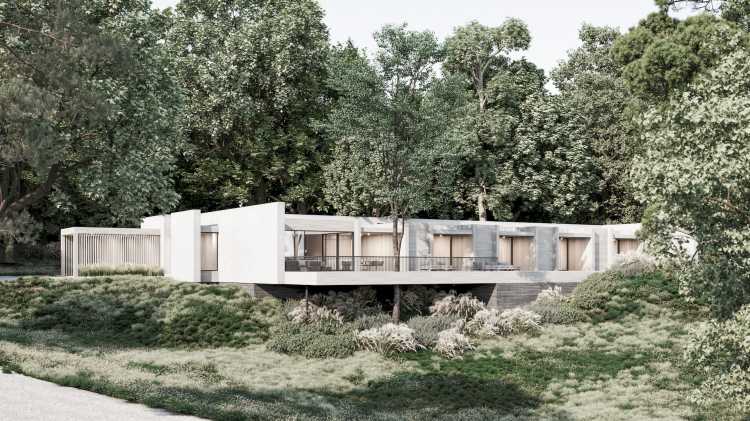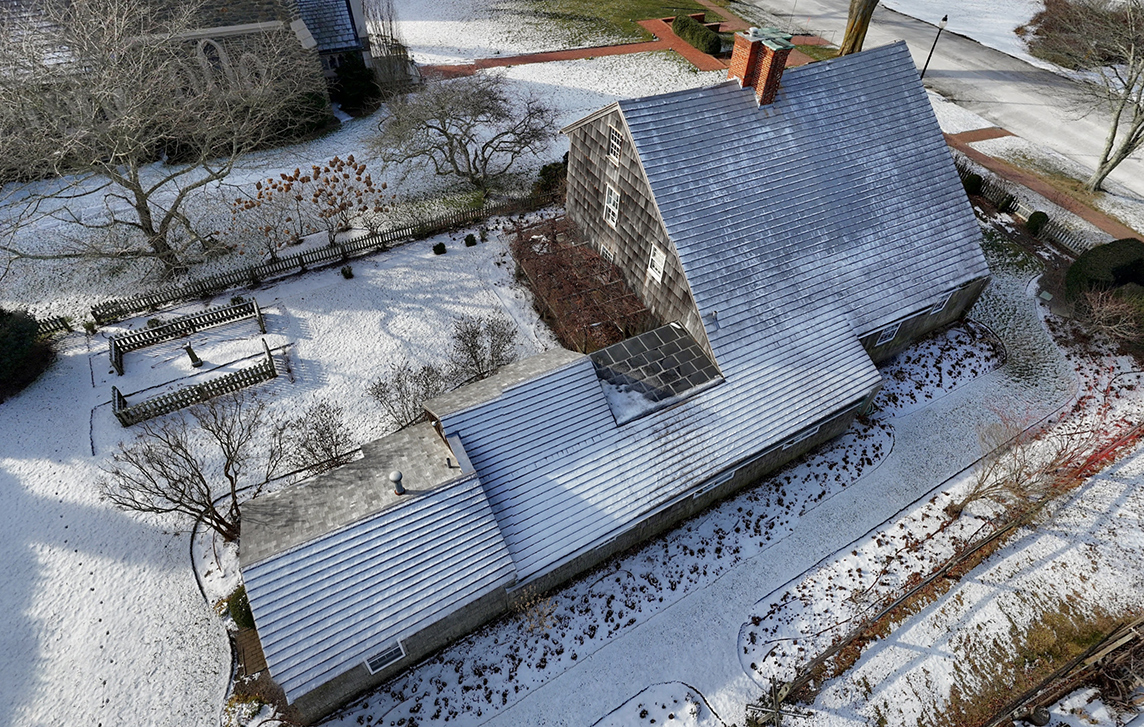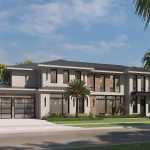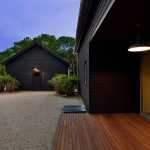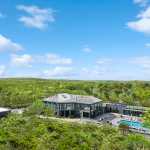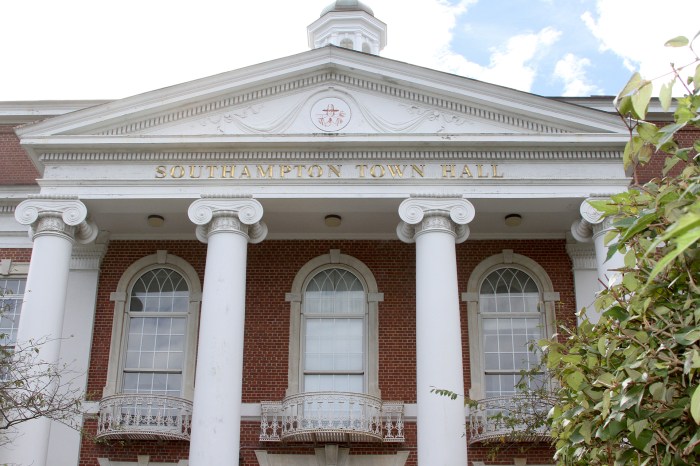An independent group affiliated with Hilton Worldwide has proposed to build a new hotel on the site of the legendary Boardy Barn in Hampton Bays.
At a well-attended Hampton Bays Civic Association meeting at the end of March, Robert Salvatico shared his team’s tentative development plans for the Montauk Highway site with residents.
Speaking on behalf of his partner, Bryan Danzi, Salvatico presented the project as a joint venture between two hotelier families, both of whom have significant roots on the East End.
Salvatico and Danzi envision a two-story, 68-room, 34,000-square-foot, “Hamptons-style hotel” with 25-30 full-time employees.
The hotel is projected to comprise somewhere between 40 and 45 studio-type guest rooms measuring approximately 300 to 330 square feet apiece, with the remainder configured as 400-square-foot, one-bedroom units or suites. If the project moves forward, construction at the site is expected to last approximately 14 months.
The property is slated to include a bar/restaurant with live music, an outdoor seating area, a pool, and possibly some wellness options such as a cold plunge or a sauna.
“The design and the decor would be thematic of the neighborhood, hopefully with input from everyone here,” Salvatico told meeting attendees.
Salvatico, whose family owns and operates Hotel Indigo and Holiday Inn Express & Suites in Riverhead, specifically noted that the restaurant would be designed primarily to serve hotel guests and wasn’t meant to compete with local food purveyors. But multiple meeting attendees lamented the lack of an affordable breakfast spot in Hampton Bays and urged Salvatico to confirm that the restaurant would be open to residents year-round. He assured them that it would.
When queried by a meeting attendee about the general quality level and price point he expected to be the hotel’s sweet spot, Salvatico described the project as “a 3.5-star space offering traditional 3-star amenities with an added flair.”
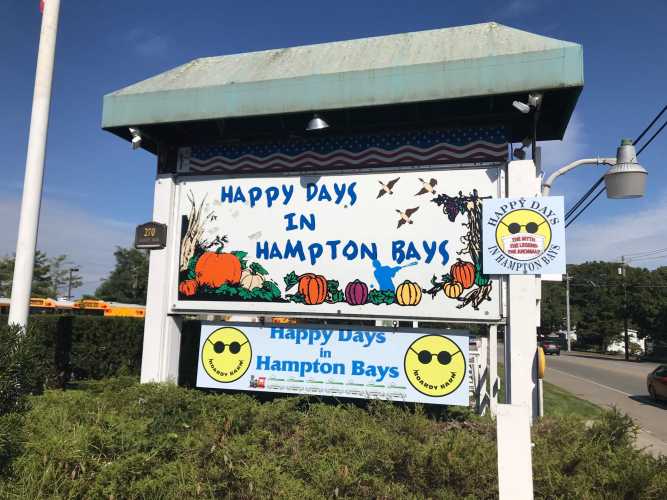
Without committing to a specific pricing structure, the hotelier acknowledged that rooms would be expensive during the summer and on peak weekends. “That’s what allows us to stay in business,” he said, adding that the hotel would “be affordable during the rest of the year.”
As part of his pitch to the community, Salvatico said that his development partnership with Hilton would help ensure the integrity of the project. But he made sure to add that his relationship with the global hospitality brand would be subtly expressed at the property.
“This is what they call a soft brand,” he said. “So we will have all the oversight and the quality expectations from Hilton, but none of the blinking signs – not the Big H and the in-your-face hotel.”
In an effort to burnish his local bona fides, Salvatico pointed out that he’s been an East End resident for 20 years and has been visiting the hamlet since he was in college, when “I had my first burger at the Hampton Bays Diner.”
“It’s always been on my mind that perhaps with the right opportunity, the right look and feel and the right standards of quality, there could be a great fit [for a new hotel] here in the Bays,” he said.
In order to make his proposal a reality, Salvatico will need buy-in from the community – and a little help with zoning issues from the Southampton Town Board.
David Gilmartin, an attorney for the developers, acknowledged at the meeting that the former Boardy Barn, which was reopened by its new owners in 2023 as a similarly themed party spot now known as The Barnyard, is located in a highway business zoning district that expressly prohibits hotels.
Gilmartin said that his clients will be asking the Board to “tweak” the zoning code to allow hotels to be designated as a special exception use in the district, which would clear the way for the $20 million construction project. At our presstime, the Board had not yet commented for the record as to whether they had received a zoning change request from Salvatico’s team.
While local residents who attended the meeting seemed generally receptive to the project, they did ask several pointed questions about potential traffic issues, tax abatements, community outreach, onsite septic system upgrades and other quality of life considerations.
Several meeting attendees pressed Salvatico to clarify his team’s stance on long-term rentals and participation in public housing programs, voicing worries that the new facility could follow in the footsteps of other Hampton Bays hotels that have been converted, at least in part, to serve as long-term housing or accommodations for homeless individuals through state or county programs.
Salvatico attempted to assure the community that such arrangements are not part of the business model for the hotel.
When a meeting attendee asked him directly if his proposed hotel would accept state-funded residents, Salvatico answered “absolutely not, adding that “what looks good in the short term becomes a legal nightmare in the long term.”
In their written presentation, Salvatico and his team also shied away from the infamous aspects of the Boardy Barn site’s beer-soaked past and focused instead on its historical significance.
“The Boardy Barn was one of the most recognizable and frequented locations in the Hamptons,” the presentation notes. “A meaningful and stylish development in its place would greatly enhance this landmark location in your community while providing a meaningful economic boost to Hampton Bays, the Town of Southampton and the South Fork at large.”





